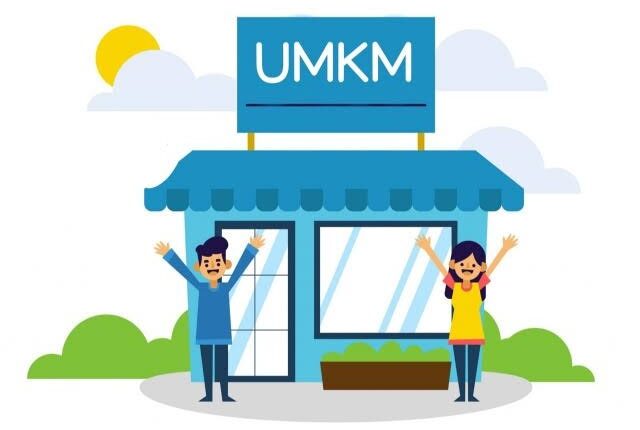Government Allocates Funds for MSME Debt Relief Program
By: Andi Mahesa )*
The government has allocated 2.4 trillion rupiah for debt relief for one million Micro, Small, and Medium Enterprises (MSMEs). This is a major step that is expected to provide significant assistance to MSMEs affected by the global economic crisis, and of course this initiative has received a lot of support and appreciation from various parties.
For many MSMEs, the government’s decision to allocate 2.4 trillion rupiah is a breath of fresh air. MSMEs in Indonesia are the backbone of the national economy, contributing more than 60% to Gross Domestic Product (GDP) and absorbing more than 97% of the workforce. However, despite its huge contribution, this sector is often entangled in financial problems. Many MSMEs have to struggle with high debt.
Economic observer, I Gde Sudibya said that the allocation of funds of 2.4 trillion rupiah for the elimination of MSME debt is a pro-people policy in order to realize his political vision oriented towards socialism. This step is in accordance with his political promise to prioritize the welfare of the people through a more inclusive and socially just approach. Furthermore, I Gde Sudibya said that the community must support this pro-people step so that the funds allocated can increase the production and marketing of their products.
According to him, the elimination of MSME debt is a savior for other MSME actors who are trapped in financial difficulties. He hopes that the government will be more active in socializing this policy, especially to the regions. In addition, the process should be made easier without overly complicated conditions so that all MSME actors who need it can feel the benefits.
With the MSME debt cancellation policy, the government is trying to ease the financial burden of MSMEs affected by various economic crises. Amidst the current global dynamics, the debt cancellation policy gives them the opportunity to restart their businesses without the burden of inhibiting debt. Not only that, this step can also increase MSMEs’ trust in government policies and strengthen a more inclusive business climate.
Senior Economist & Associate Faculty of the Indonesian Banking Development Institute (LPPI), Ryan Kiryanto said that the policy of debt relief for micro, small, and medium enterprises (MSMEs) will have a significant impact on the national economy. According to Ryan, the amnesty of MSME bad debts can make them try and have access to financing again.
When the accumulated debt is written off, MSMEs will have more liquidity to use in developing their businesses. Capital that previously had to be allocated to pay debts can be diverted to improve product quality, expand distribution networks, or even innovate in the face of market competition. This will directly increase the competitiveness of MSMEs both at the national and international levels.
Many MSMEs are experiencing economic difficulties due to the impact of global economic instability. Some of them are even unable to survive due to the increasing accumulation of debt. The debt cancellation policy will provide a breath of fresh air for MSMEs to continue their business operations without being burdened by mounting financial obligations. Thus, these businesses can contribute more to the economy, create jobs, and reduce unemployment.
Meanwhile, Coordinating Minister for the Economy, Airlangga Hartarto said that the debt cancellation policy aims to help 67 thousand MSMEs that are really squeezed by unexpected economic conditions, such as actors who experience financial difficulties due to external factors such as earthquakes, natural disasters, or the impact of the COVID-19 pandemic. As a note, this debt cancellation does not apply to MSMEs that still have the ability to pay debts.
Airlangga added that the government through the Ministry of Cooperatives and SMEs is trying to encourage banks to be in line with the Government Regulation (PP) related to the program.
In line with Airlangga, the Minister of SMEs, Maman Abdurrahman said that this policy will have a significant impact on national economic growth. Debt write-offs have the potential to help around thousands of MSMEs in Indonesia. On average, the amount of debt written off ranges from IDR 300 million to IDR 500 million per MSME, depending on the status of the business entity or individual. With an estimated total write-off of receivables reaching around IDR 2.4 trillion, the government hopes that this policy can ease the burden on MSMEs that have long been in debt, while also giving them the opportunity to restart their businesses without the burden of financial obstacles.
Thus, the policy of eliminating MSME debt initiated by President Prabowo is the right and relevant step amidst increasingly complex global economic challenges. This policy has the potential to provide a positive impact on the Indonesian economy as a whole. To achieve optimal results, it is important for the government to implement this policy carefully and ensure that there is assistance for MSME actors so that they can develop better in the future, as well as strong support from all elements of society so that this policy can be implemented properly and on target.
*) The author is a student who lives in Jakarta.
